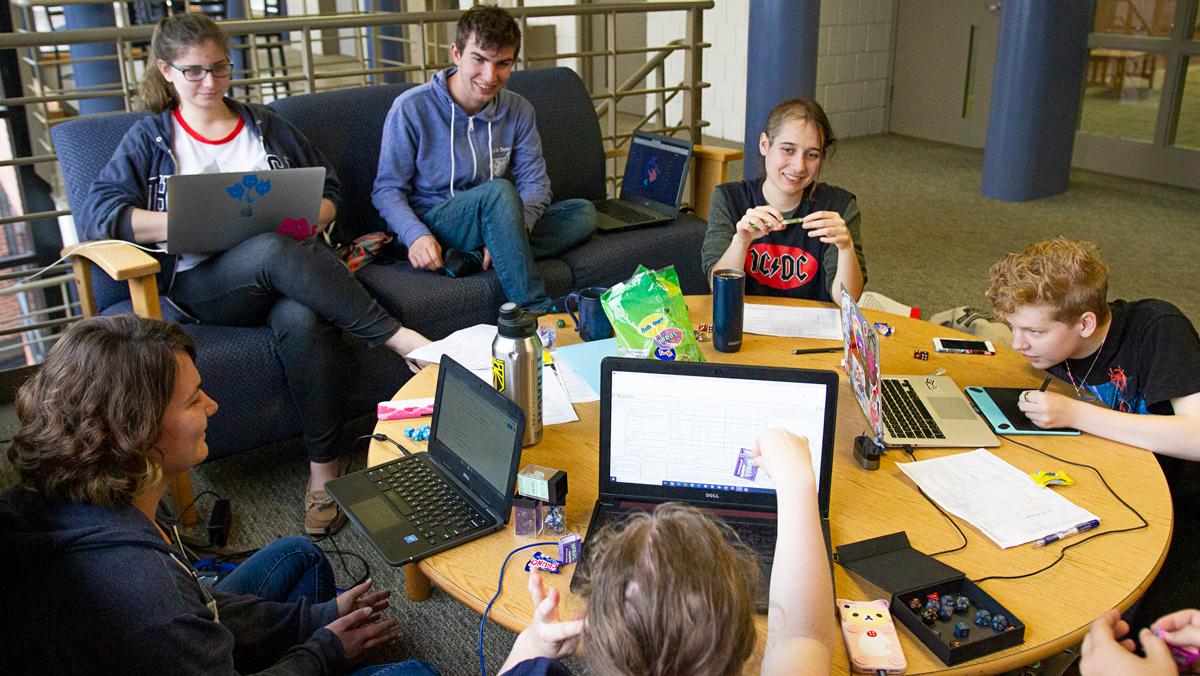Tabletop gaming is a fun and rewarding hobby that can bring people together. Whether you're playing board games, card games, or role-playing games, the sense of community and camaraderie that comes with gaming can be incredibly valuable. But how do you build a successful tabletop gaming community? Here's what academic research says:
Create a welcoming environment
Research shows that creating a welcoming and inclusive environment is key to building a successful gaming community. This means making sure everyone feels welcome regardless of their race, gender, or other identities. Consider establishing community guidelines that promote respect and inclusivity.
Host regular events
Hosting regular gaming events is a great way to build a sense of community and keep people engaged. Consider hosting game nights, tournaments, or other gaming events on a regular basis. This can help people feel more connected to the community and give them a sense of belonging.
Encourage participation
Encouraging participation is another important factor in building a successful gaming community. This means making sure everyone has a chance to participate and contribute to the community. Consider asking for feedback and suggestions from community members, or asking people to bring their own games to events.
Foster social connections
Research shows that social connections are a key factor in building a successful community. This means creating opportunities for people to connect and get to know each other outside of gaming events. Consider hosting social events like potlucks or movie nights, or creating online spaces where people can chat and connect.
Provide clear communication
Clear communication is essential for building a successful gaming community. Make sure everyone knows when events are happening, what games will be played, and any other important details. Consider creating a newsletter or social media group to keep people up-to-date on community news and events.
What are some common mistakes to avoid when building a gaming community?
When building a tabletop gaming community, there are some common mistakes that can hinder your efforts to create a successful and inclusive community. Here are a few to watch out for:
Excluding people
One of the biggest mistakes you can make is excluding people from your community. This can happen unintentionally, such as by only inviting your close friends to events, or intentionally, such as by excluding people based on their race, gender, or other identities. To build a successful gaming community, it's important to create a welcoming and inclusive environment where everyone feels comfortable and valued.
Failing to communicate effectively
Another common mistake is failing to communicate effectively with community members. This can lead to confusion about events, rules, or other important details, which can make people feel disconnected from the community. To avoid this, make sure to communicate clearly and regularly with community members through newsletters, social media, or other channels.
Dominating the conversation
As the organizer of a gaming community, it can be tempting to dominate the conversation and make all the decisions. However, this can make other community members feel left out and undervalued. To avoid this, make sure to listen to feedback from community members and give everyone a chance to contribute to the conversation.
Neglecting diversity and inclusivity
A successful gaming community should be diverse and inclusive, welcoming people of all backgrounds and identities. Neglecting diversity and inclusivity can lead to a homogenous community that fails to reflect the diverse interests and experiences of its members. To avoid this, make sure to actively seek out and welcome people from a variety of backgrounds and identities.
Focusing too much on competition
While competition can be a fun part of tabletop gaming, focusing too much on it can create a toxic environment that turns people away from the community. To avoid this, make sure to balance competitive play with cooperative play and emphasize the social and community aspects of gaming. Remember, the goal is to build a community that fosters inclusivity, participation, and social connections.

Comments
Post a Comment